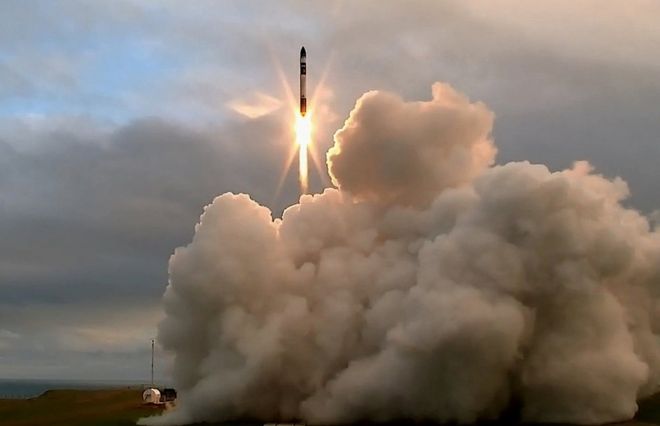
Rocket Lab, a Silicon Valley-funded space launch company, on Thursday launched the maiden flight of its battery-powered, 3-D printed rocket from New Zealand’s remote Mahia Peninsula.
“Made it to space. Team delighted,” Rocket Lab said on its official Twitter account.
The successful launch of a low cost, 3D-printed rocket is an important step in the commercial race to bring down financial and logistical barriers to space while also making New Zealand an unlikely space hub.
The Los Angeles and New Zealand-based rocket firm has touted its service as a way for companies to get satellites into orbit regularly.
New Zealand have entered the space market — launching a
rocket partly made of carbon fibre, with engines made from a 3D printer, into
space.
American-New Zealand company Rocket Lab, which was behind
the launch, want to take a slice of the booming market for getting small
satellites into orbit.
Peter Beck, founder of Rocket Lab, said despite the
spacecraft falling short of its goal to reach orbit, they were counting the
launch as a success.
"We didn't quite reach orbit — we'll work out exactly
why," he said.
"But we got a long, long way there. It was really a
fantastic first flight."
During the test the booster's first and second stages
separated successfully, however the upper stage failed to reach the desired
orbit about 500 kilometres above Earth.
The test launch was Rocket Lab's initial attempt, and they
have reported plans for a second test to be run near the end of May.
The Electron rocket is built of carbon composite, designed
and manufactured in New Zealand in under four years.
Unlike Space X's Falcon, the Electron has not been designed
to be reused, but Rocket Lab predicted they would be built and launched at an
unprecedented rate.
"We're all about launch frequency and we're trying to
drive towards once a weekly launch," said Mr Beck.
"The trouble with metallic [rockets] is if you start
off with sheets of aluminium you have to roll them, friction stir weld them and
then paint them.
"Whereas [with] a carbon composite, literally we can
laminate it in one hit and make a tank very, very quickly, and we don't need to
paint it."
Big demand for small payload rocket launches
Rocket Lab are not aiming to take traditional satellites to
space, instead they want to help send up small devices that travel in swarms or
constellations.
They could be used for improved weather reporting, internet
from space or natural disaster prediction.
Rocket Lab said they already had customers signed up,
including NASA.
"We have a very busy 2018, and a business 2019 — and
we've got a lot of customers booked and backlogged so it's time to open the
throttles," said Mr Beck.
click on link for video details...
With approval to launch up to 120 times a year, Hawke's Bay
on New Zealand's east coast proved the perfect launch site.
Geographically the location is perfect for reaching the
areas of space that are in high demand.


No comments:
Post a Comment